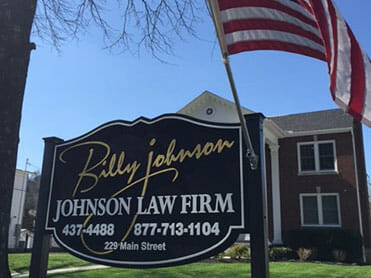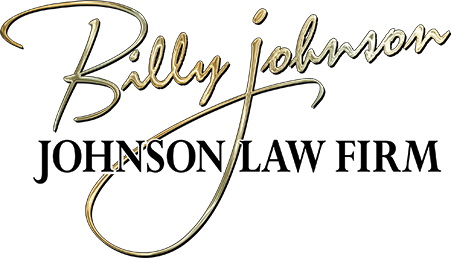Choosing an attorney
Selecting an attorney is the single most important aspect in determining the outcome of your case
Here are a few important things that you should consider when making your choice.
Have you visited their office?
This is an extremely important step. You should visit the prospective attorney’s office, and meet with the attorneys and their staff.
Why? Because they will be working on your case; communicating with you over the course of your litigation which, depending upon its complexity and the extent of your injuries could be anywhere from a few months to upwards of a year.
Ask Questions
- Is the attorney accessible to me?
- Will he/she return my calls promptly?
- Does he/she have experience with trying cases before a jury?
- How many cases like mine has he/she handled?
- Will my case be handed off to less experienced lawyer?
- Does the firm prefer to litigate or reach an out-of-court settlement?
- Who might some previous clients be and will they give a reference?
- What are the fees and payment terms?
Visiting the office and asking questions is the only way you can make an informed decision. It’s also the only way you can determine whether the firm has the energy, experience and dedication, as well as the resources to litigate your claim in such a way as to maximize the compensation.
How to Find a Personal Injury Attorney
Lawyers have to follow certain rules when it comes to advertising. That’s one of the reasons why it can seem that they are everywhere and nowhere at once. We have all seen TV ads and billboards offering legal services, just as we’ve each walked by (or into) that office building that counts attorneys-at-law as tenants. Yet, when you find yourself in the position of needing one, it can suddenly seem an overwhelming chore.
To begin with, not all attorneys practice all areas of law. When you have been harmed by someone else’s negligence, you want to have the best personal injury lawyer on your side. A good starting point is to ask for referrals from people you trust. If you don’t know anyone who has had occasion to need a personal injury attorney or if you are uncomfortable sharing details, the internet is a great resource. There are numerous websites offering loads of information. For example, Super Lawyers rates outstanding lawyers who have attained a high-degree of peer recognition and professional achievement; members of the American Trial Lawyers Association promote a fair and effective justice system; and the prestigious Million Dollar Advocates Forum is limited to attorneys who have achieved million- and multimillion-dollar results.
Of course, everything can be found by using a search engine, and legal help is no different. A simple search on Google or a similar engine using a geographic designation along with a qualifying legal term can narrow the field considerably. For example, a local resident who was injured in a head-on car accident caused by a drunk driver could search for “Pikeville drunk driving accident attorney” or “Pike County DWI wreck lawyer” or even “KY head-on collision lawyer.” Another excellent place to investigate is Facebook or Twitter. A lawyer’s social media presence can tell you a lot about how they will treat you and your case. Be sure to visit the website of any lawyer you might be considering and gauge your reaction to the layout, the “message,” and any biographies.
Once you’ve narrowed it down, it’s time to do some legwork. Most personal injury attorneys do not charge for the initial consultation so you have nothing to lose by visiting two or three firms. In-person meetings are important, because you want to select someone you feel you can communicate with. Cases take time to resolve, so you should feel comfortable with the attorney, the staff, and the way they treat you. Bring along a summary of your story with details such as a description of the accident, the people involved, and your injuries. While a lawyer can give you an overview of possible outcomes, he or she is not allowed to promise a particular result.
Personal Injury Law Vocabulary and Glossary
The law can be an intimidating subject for many reasons, not the least of which is the confusing vocabulary
The Eastern KY personal injury attorneys of the Johnson Law Firm recognize this unfortunate limitation and offer these easy-to-reference definitions as a service to potential clients who may have personal injury matters. Of course, everyone’s situation is unique, and specific questions should be directed to a lawyer. For more than 15 years, the Johnson Law Firm has been in the business of helping injured people and fighting insurance companies. Stop by or call for a free, confidential consultation and you’ll understand why the Johnson Law Firm is known as the “nicest place in town.” We can be reached at 606-437-4488 or by using this online contact form.
Comparative Fault: If the plaintiff is partly to blame for the incident that is the subject of the lawsuit, his or her award of damages can be reduced according to the amount of fault. Different states follow different rules. If the incident happened in Kentucky and it turns out that plaintiff is partly responsible, the court will assign percentages of fault among all the parties and the damage award will be apportioned accordingly.
Complaint/Answer: The complaint is the written expression of the plaintiff’s grievances that is filed with the court. This is what formally starts a lawsuit. In response, the defendant files an answer, which serves to notify the plaintiff and the court of the defendant’s position regarding the allegations.
Damages: This is what the plaintiff is seeking to recover by filing suit. Damages in a personal injury lawsuit are equal to money. Economic damages are quantifiable damages such as current and future medical expenses, wages lost while out of work due to the accident, wages lost due to decreased earning capacity in the future because of the injuries, and repair bills. Non-economic damages are not specifically quantifiable and include such things as pain, suffering, loss of enjoyment of life, and emotional distress. In a car accident, for example, your $15,000 hospital bill would be an economic damage, while the $10,000 you are seeking due to the anxiety and insomnia you have suffered because of your injuries would be considered non-economic damages.
Negligence: Is a failure to act with reasonable care. Duty, breach, causation and damages are the backbone of nearly every personal injury case. To prove negligence, a plaintiff has to show:
- that the defendant had a duty or obligation to the plaintiff,
- that the defendant violated or breached that duty,
- that the breach caused damage to the plaintiff, and
- that actual damages exist.
Continuing with the example above, a car driver has a duty to use reasonable care toward other road users that are reasonably foreseeable to be affected by his actions. Perhaps he breached that duty by failing to stop at a red light. Because he breached his duty, his car collided with yours, causing you physical and financial damages. The driver of the other car was negligent.
Plaintiff/Defendant: The parties to a lawsuit. The plaintiff is the party that brings the lawsuit. The defendant is the party that is allegedly responsible for the plaintiff’s injuries. For example, if you are injured in a car accident and you sue the driver of the other car, you are the plaintiff and the other driver is the defendant.
Statute of Limitations: The time period during which a lawsuit must be filed. If the plaintiff does not file suit within the appropriate time, he or she is forever barred from doing so. Limitations periods are set by state law, vary from case to case depending upon the circumstances, and can be quite complicated to apply to a particular set of facts. There are often complex questions about when the injury was or should have been discovered, which is what starts the limitations clock. In Kentucky, suits arising from motor vehicle accidents generally must be filed within two years. The statutes of limitation for other types of personal injury claims may be shorter or longer.
Torts/Intentional Torts: From the French word for “wrong,” a tort is a wrongful act that causes injury. If the act is done on purpose, then it is an intentional tort. Nearly every cause of action in a civil suit is a tort, including negligence, vehicle accidents and wrongful death. Some intentional torts may also be crimes, such as assault, battery, fraud, trespass, and wrongful death (manslaughter, murder, etc.). Tort law is one of the major areas of law, along with contract, real property, family, and criminal law.
Wrongful Death: When an individual’s death is the fault of another person or entity, the surviving members of the victim’s family may sue to be compensated for their loss. Before a wrongful death lawsuit can be brought in Kentucky, someone must appear before the probate court and qualify as the personal representative. After the personal representative is appointed, the wrongful death action can then be filed and pursued like any other negligence action.
 We would like to invite you to come by our offices and spend some time with us. We welcome the opportunity to show you our facility and answer any questions that you might have. Stop by or call for a free, confidential consultation and you’ll understand why the Johnson Law Firm is known as the “nicest place in town.”
We would like to invite you to come by our offices and spend some time with us. We welcome the opportunity to show you our facility and answer any questions that you might have. Stop by or call for a free, confidential consultation and you’ll understand why the Johnson Law Firm is known as the “nicest place in town.”
Johnson Law Firm offices are open Monday through Friday 8:30am.- 5:00pm. For your convenience, late evening and weekend hours can be arranged.



 William “Billy” Johnson grew up in the Dorton area of Pike County, Kentucky, and early on decided to stay in the beautiful Appalachian mountains. Like many others in Eastern Kentucky, Billy’s dad worked as a coal miner, a hard job but one that taught his son how to meet challenges head on and persevere. Attorney Billy Johnson has years of experience helping injured clients with claims such as car, truck, and motorcycle accidents, wrongful deaths, work injuries, and more. [
William “Billy” Johnson grew up in the Dorton area of Pike County, Kentucky, and early on decided to stay in the beautiful Appalachian mountains. Like many others in Eastern Kentucky, Billy’s dad worked as a coal miner, a hard job but one that taught his son how to meet challenges head on and persevere. Attorney Billy Johnson has years of experience helping injured clients with claims such as car, truck, and motorcycle accidents, wrongful deaths, work injuries, and more. [ 



